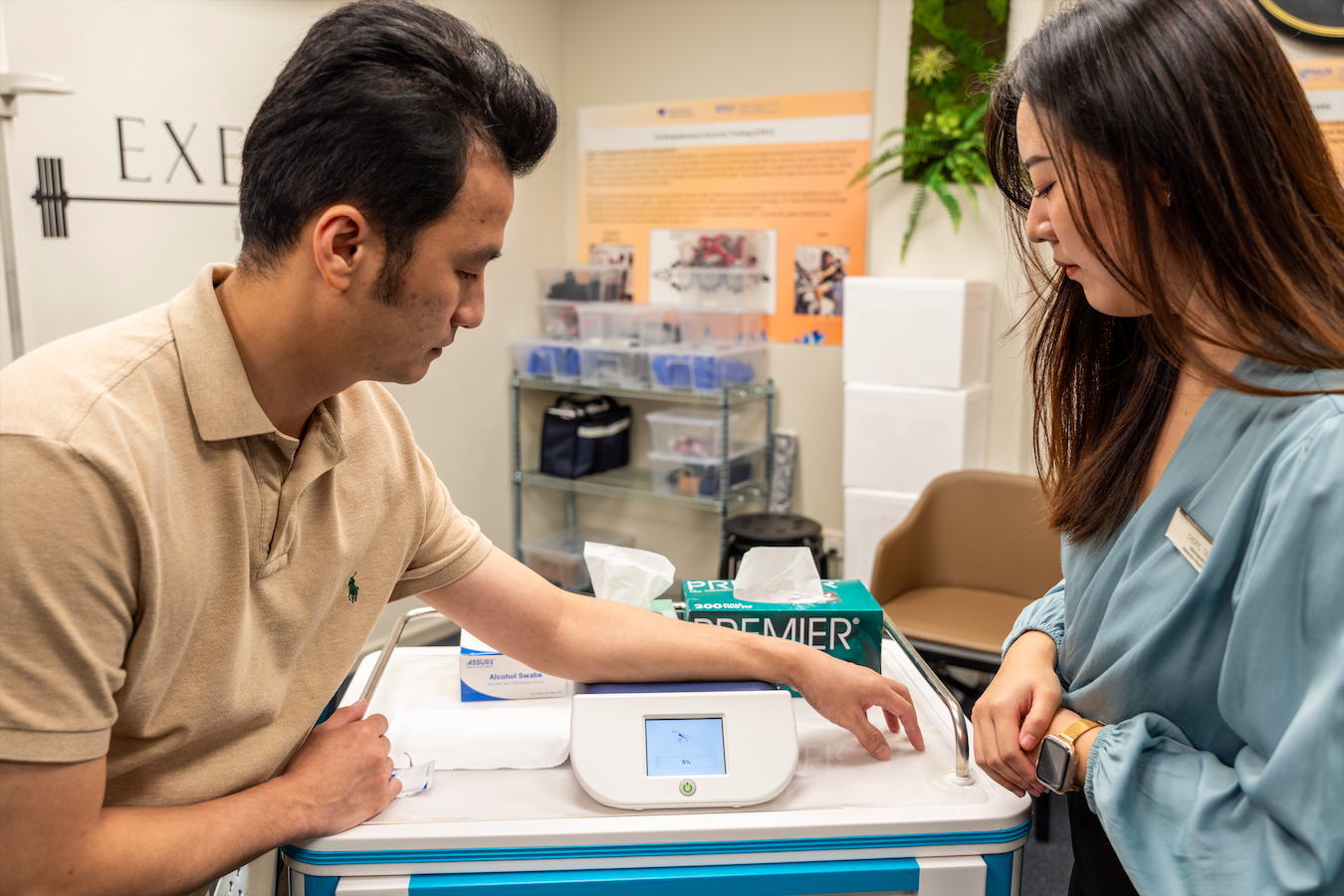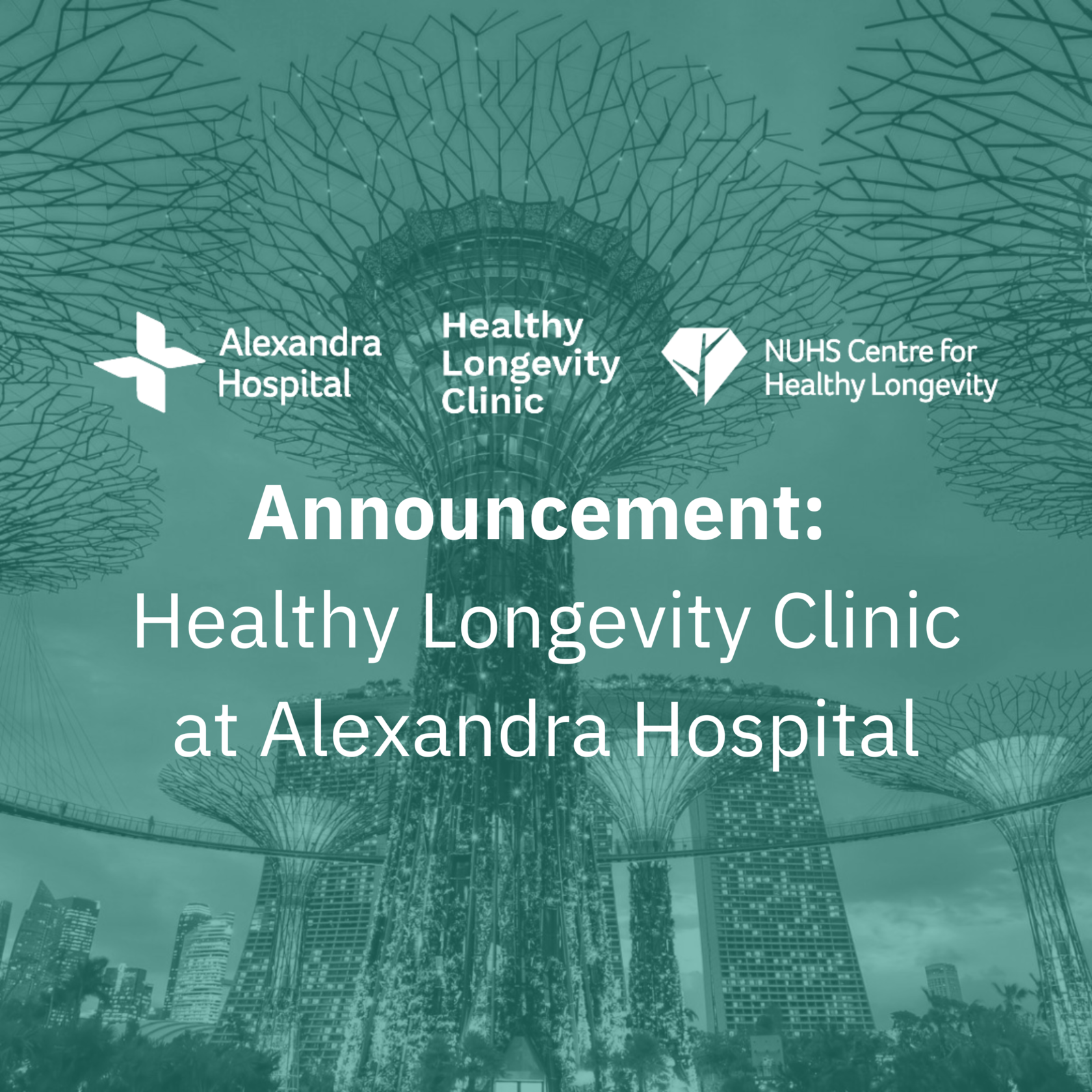AUGUST - COPENHAGEN - During the Aging Research and Drug Discovery Meeting, Dr. Andrea B. Maier, a member of our Scientific Advisory Board and the Director of the Center for Healthy Longevity (CHL) at the National University Health System in Singapore (NUHS), announced the successful launch of a healthy longevity clinic in a public hospital - a collaborative effort between NUHS and Alexandra Hospital. This incredible milestone resonates deeply with our mission to democratize access to longevity care and treatments, ultimately extending the healthy human lifespan. The opening of the Healthy Longevity Clinic at Alexandra Hospital follows another groundbreaking initiative unveiled earlier in May of 2023: the opening of the Sheba Longevity Center - another longevity center in a public hospital, directed by Dr. Evelyne Bischof, the chair of our Scientific Board.
We are incredibly proud to have trailblazers like Dr. Maier and Dr. Bischof on our Scientific Advisory Board. The establishment of the Healthy Longevity Clinic at Alexandra Hospital marks a momentous stride towards public accessibility to longevity advancements. Read the full press release below:
A year after the official launch of the Centre for Healthy Longevity (CHL), the National University Health System (NUHS), National University of Singapore (NUS) and Alexandra Hospital (AH), on 31 August 2023, announced the opening of the” “Healthy Longevity Clinic” to the general public, the first of its kind in the world in a public hospital. AH’s doctors, nurses, exercise physiologists, dietitians and health coaches now accept appointments to provide diagnosis and interventions for individuals between 35 and 70 years old with a maximum of one stable chronic disease. The aim is to optimise health by targeting ageing processes throughout the life course, as early as possible. The Clinic also aims to establish the cost-effectiveness of the service in optimising health and increasing healthspan and integrates implementation science into the framework. The ultimate goal is to make evidence-based healthy longevity medicine accessible to everyone.

Dr. Andrea B. Maier, a member of our Scientific Advisory Board and the Director of the Center for Healthy Longevity (CHL) at the National University Health System in Singapore (NUHS).
Advantages of being in a public hospital:
Its co-location in the public healthcare system is timely and beneficial as Singapore shifts the healthcare paradigm towards preventive healthcare for the broader population, where a greater majority are healthy and disease-free. It is co-located with the NUHS CHL, which Professor Andrea Maier, an internal medicine specialist renowned for translational research in ageing and age-related diseases, diagnostics, and pharmacological and non-pharmacological interventions in ageing humans, leads. Prof Maier is also the Founding President of the Healthy Longevity Medicine Society, an international medical society for healthy longevity medicine, promoting the highest standards of clinical practice and interdisciplinary collaboration. The NUHS CHL is where new treatments and technologies for healthy longevity medicine are being tested. There will be opportunities for people in the Clinic to participate in research trials of supplements, repurposed drugs and other interventions targeting biological ageing. The first human clinical trials involving lifestyle interventions and nutritional supplements began last year. The first human clinical trial for repurposed drugs will start next. The Clinic will also be a valuable resource for the community, providing education and outreach on topics related to healthy longevity to promote healthy ageing and prevent and reduce the burden of age-related diseases.

The Clinic, helmed by Clinical Director and Clinical Assistant Professor Laureen Wang, will use the hospital’s existing infrastructure and resources, such as laboratory, imaging and medical specialists. AH’s care model is already one of integrated, seamless, patient-centred care. So, the Healthy Longevity Clinic, which falls under the auspices of AH’s Well Programme (preventive health screening, women’s health and sports medicine), is integrated with other complimentary services within the hospital. Should any abnormalities be identified during the service that are best handled by other specialities, participants will be referred accordingly to ensure comprehensive and specialised care.
Purpose of the Clinic:
The new Healthy Longevity Clinic aims to delay biological ageing, optimising functionality and resilience and increasing healthspan through evidence-based diagnosis and intervention. Using ageing biomarkers specific to the Singapore population, the Clinic will leverage breakthroughs from the NUHS CHL and incorporate advances in geroscience and healthy longevity medicine towards precision medicine.
What to expect at the Clinic:
The Healthy Longevity Clinic offers a comprehensive approach to health and longevity, starting with a thorough baseline assessment using a range of tests from blood biomarkers for ageing to measuring exercise capacity to advanced techniques such as epigenetics and artificial intelligence to measure biological age.
Some of the assessment tools used in the Clinic include:
- Clinical biomarkers such as arterial stiffness, cardiac age, body composition analysis, cognition, physical and functional performance
- Biological biomarkers such as blood age, epigenetic age and microbiome analysis
- Digital biomarkers to track physical activity, sedentary behaviour, sleep and physiological parameters
This assessment will identify the individual’s biological age and risk factors for chronic disease and functional decline.

Following the comprehensive baseline assessment, a multidisciplinary team including doctors, nurses, allied health professionals and health coaches will review each individual’s health status and develop a Personalised Care Plan (PCP) tailored to their needs and goals. The plan will include diet, exercise, sleep, and medical interventions, such as medication and supplements, if necessary. The Clinic provides regular health coaching sessions, telemonitoring and access to digital health monitoring tools to ensure ongoing support. This emphasis on continuous care and monitoring sets the Clinic apart from traditional healthcare models. The individual will have repeat assessments between 6 and 12 months and up to 24 months, if need be, to assess their progress.
Clinical indicators and targets:
The Clinic aims to achieve specific clinical indicators and targets to demonstrate the effectiveness of the interventions. Targets for key indicators are as follows:
- HbA1c (average blood glucose levels): Aim for a reduction of 0.5%.
- LDL (low-density lipoprotein) cholesterol (an indicator of heart disease and stroke): Aim for a reduction of 30-40 mg/dL
- HS-CRP (indicates the risk of heart disease and stroke in people who are not predisposed): Aim for a 33% reduction
- Vo2 max/peak (maximum amount of oxygen an individual can consume during peak exercise): Aim for an increase of 3-5 mL/kg/min
These clinical indicators are tangible measures of the participant’s progress in managing their health and slowing the ageing process. Achieving these goals will mean improved metabolic health, inflammation and cardiovascular fitness.
To get in touch with the Clinic, email AH_Wellness@nuhs.edu.sg.

